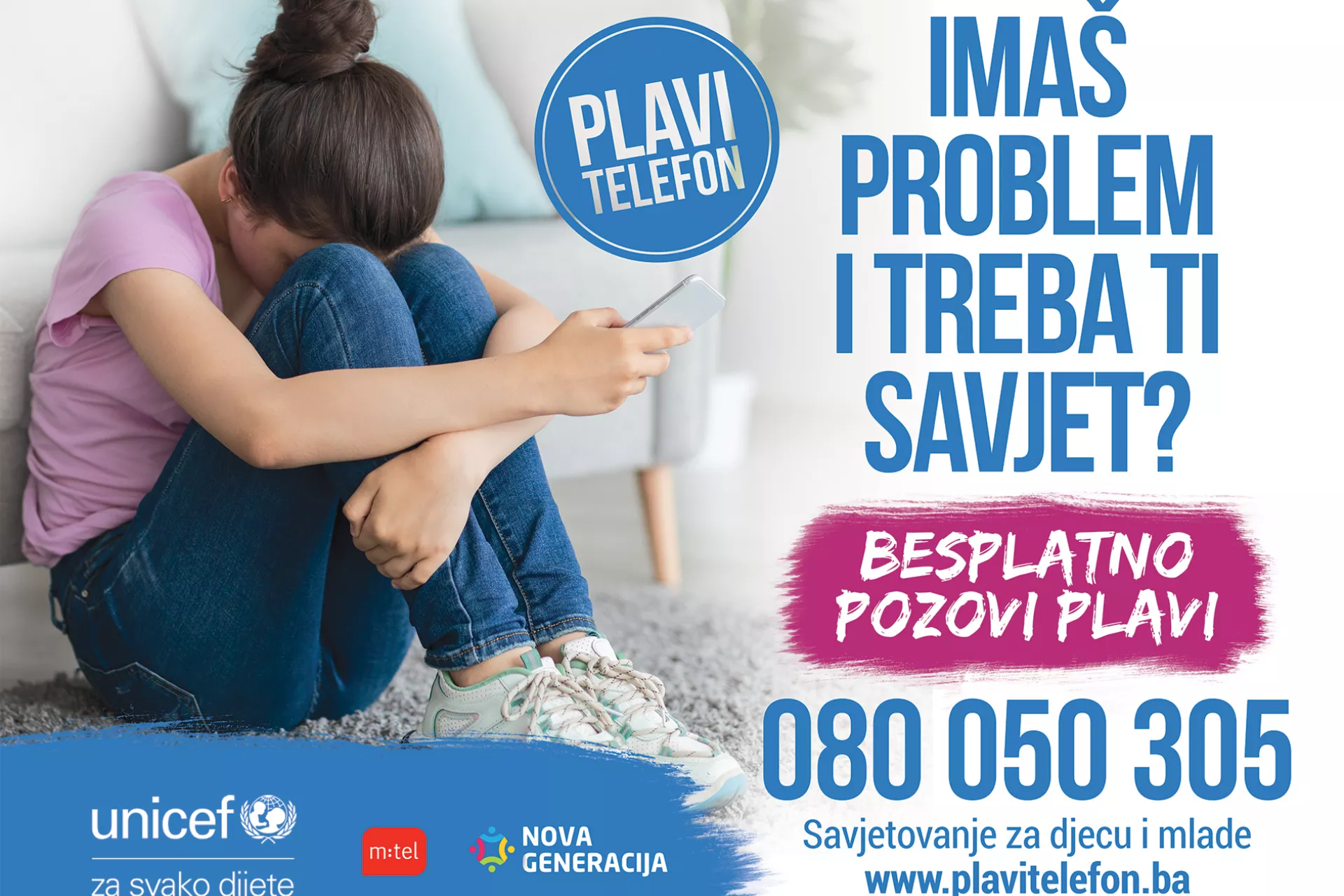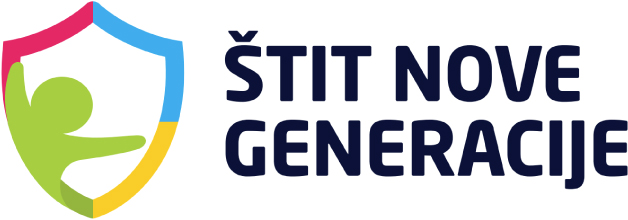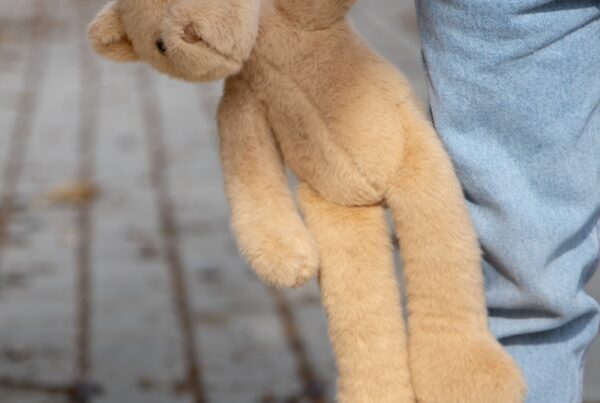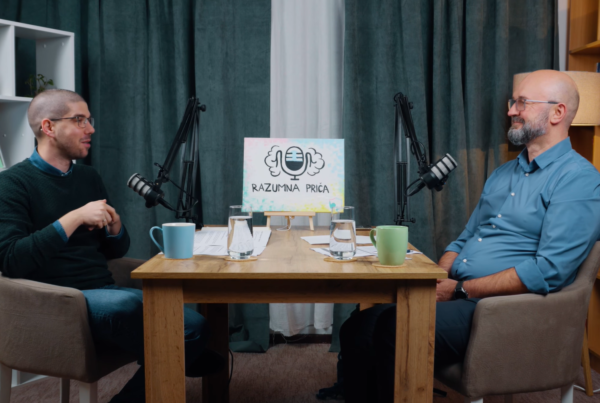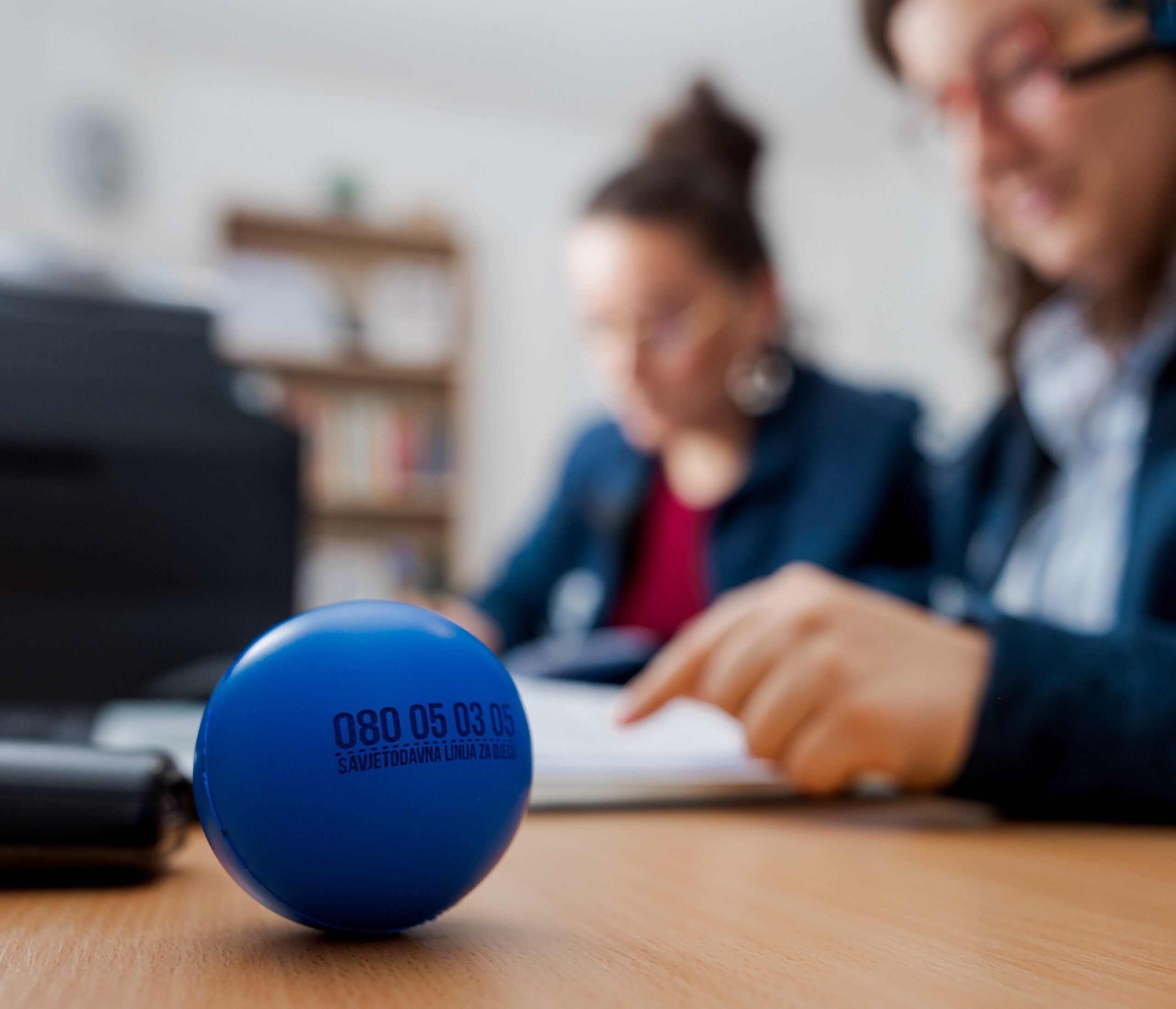Online and telephone counseling for children and families
Blue phone is an advisory line for anonymous and free help to young people and children in Bosnia and Herzegovina. The most common reasons why children turn to them are related to mental health, violence or abuse.
Year after year, the number of calls related to mental health is increasing constantly increases.
For the sake of comparison, every year since the beginning of the pandemic, there have been up to 5 times more conversations on this topic compared to the period before the pandemic, while the largest number of calls comes from girls aged 10 to 19.

Foto: Arhiva Nove generacije
The phone lines are always hot. The counselor answers one of the calls and hears a woman's voice:
"Good day! I need help, I have no one to talk to about the situations I'm going through right now, not even my parents and brothers. I hope I can trust you."
After the counselor encourages her to continue, 14-year-old Hana* states that her problems started a few months ago when her father became seriously ill and was fired from his job, which threatened the whole family economically. In addition to caring for her father, her mother had to work, just so that Hana and her brothers could have at least basic things. However, she also succumbed after some time. Until yesterday, a stable and functional family found itself in crisis and poverty. Hana was extremely affected by this.
Unfortunately, problems in the family are only one of a series of difficulties that Hana faces.
She has been exposed to violence since the first grade of elementary school. The girl describes her peers beating her, calling her names, and making fun of her appearance. She also described the situation that happened a few days before calling the Blue Phone:
"Two girls spilled ink on my backpack and jacket because I was sitting in front of them, nothing could be washed off." In addition, they threw trash and crumbs on my things and around the table, blaming me for it being mine. I reported to the class teacher, but no one responds. Nobody cares about me, they know I'm there, but they don't pay attention, if I died in the middle of the classroom, nobody would notice."
In the further conversation with the counselor, Hana also discovers something very worrying:
"A few months ago I started to self-harm, and it still continues. My only way out of these problems is to hurt myself, and so I waited for everything after some problem to come home and cut myself, on my arms, legs, hips. It's easier when my body hurts."
However, after a while, the situation became even more serious because the school she attends found out that Hana was self-harming.
Zbog samopovrjeđivanja, Hana je često odlazila kod psihologa i pedagoga, ali je to za nju bilo stresno, jer su je izuzimali sa časova te bi se situacija samo pogoršala kada bi se vratila u učionicu: “Pedagog škole i psiholog me često izuzimaju sa časova i vode na razgovor, što je za mene stresno zbog svega što me čeka kada se ponovo vratim u razred, a to su dobacivanja i izazivanja. Kada su u mom razredu saznali da se samopovrjeđujem, neko od njih me je odao čitavoj generaciji, tako da su svi saznali, prestali se družiti sa mnom, počele su te najgore priče i jos uvijek to kruži školom.”
In addition to not being understood at school, Hana says that she did not receive the support and understanding she needed from her parents either. "Nobody supports me in the family. If I complain that I need new clothes, they say they have bills to pay. When they found out that I was self-harming, they threatened me not to do it anymore or they would punish me. They conclude every story by saying that they survived the war and remained normal, and that nothing will happen to me and that I don't need professional help."

© Blue Phone
During the conversation, the Blue Phone counselor supported the girl and tried to come up with the most adequate solution together with her. One of the possibilities is i report of suspected violence. Hana did not immediately agree to the application because she was afraid that the situation at school and in the family would worsen, and that she would be exposed even more. But the counselor explained how the application works and what could happen if the competent institutions are notified. After several hours of talking with the counselor, Hana decided to report the violence that was happening to her.
After the conversation with the girl, the report of suspected violence against the child, with all the information obtained, was sent to the competent institutions, the Police Administration and the Center for Social Work.
In addition, the counselor talked with the girl about different techniques that could help her cope with the unpleasant emotions she feels as well as self-talk. The girl learned through the conversation the technique of drawing on the parts of the body where she cuts herself to delay self-harm, and the technique of self-harm on paper, in which he draws his silhouette on paper and when he feels the urge to self-harm, he does it on paper instead of on his body.
A day later, Hana called again and said that representatives of the police visited her and interviewed her and her mother:
"I must say that I was positively shocked when they came. They asked if everything was okay, to see if I was okay, if there were any problems at school, so they made a list of everything I talked to you about and said they would contact the school. They told me that I can contact them and the center for social work if I have a problem."
After that, Hana spoke to the Blue Phone several times, and in one of the conversations she stated that she started seeing a psychologist at the Health Center and that already feeling a little better. In one of the conversations, she also shared how she feels when she talks to Blue Phone counselors:
“The first first time in my life I felt true support and actually true love, even though it's not live, somehow you changed my outlook on life, it's easier when you have a person you can tell anything to and they'll help you and won't turn it against you. I feel safe and I'm surprised that after a couple of hours of talking you can have such a positive influence and turn my story around."
UNICEF in Bosnia and Herzegovina, has been a partner of the New Generation association, which is run by Plavi Telefon, for several years. Advice lines such as the Blue Phone are important in the promotion and realization of children's rights, as they provide a safe and accessible platform for children and young people to get the support they need. They offer an effective way to provide children and young people with accurate information, psychological counseling and refer them to appropriate services or resources in their communities and thus enable them to receive professional help and support. Bearing in mind the needs of children and young people in Bosnia and Herzegovina, as well as the recommendations of the Committee for Children's Rights in Bosnia and Herzegovina, and the recommendations of children and young people from 20 municipalities, it would be necessary to provide institutional recognition and long-term systemic support and sustainability of the services of the Advisory Line for Children, and establish technical and formal legal conditions for the assignment of a European unique number for lines of special social importance - call center for children 111 116
In order to achieve the stated goals, it is necessary to continue good partnership cooperation with institutions and organizations that have jurisdiction in making decisions related to the work and functioning of the line with children.
Source. UNICEF BIH

